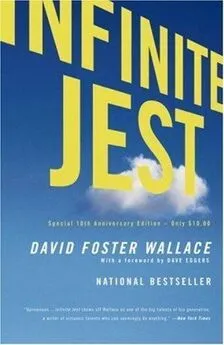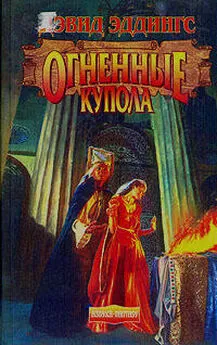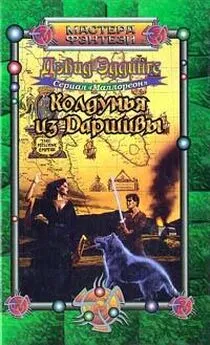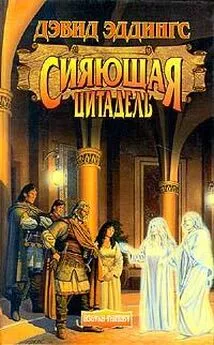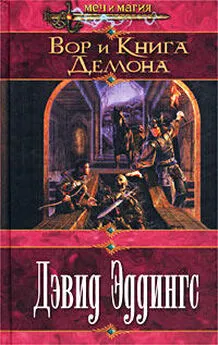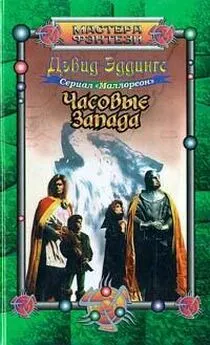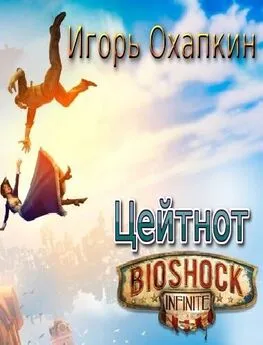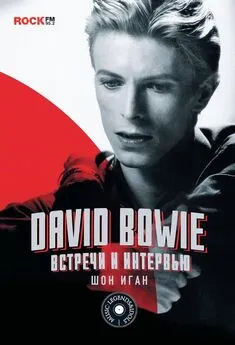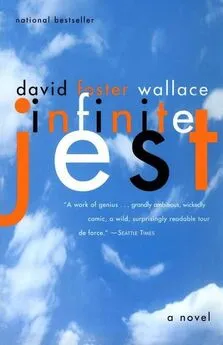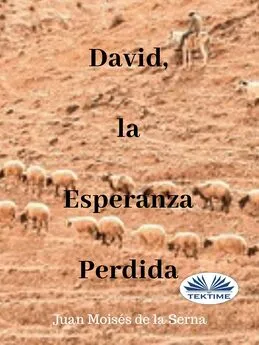David Wallace - Infinite jest
- Название:Infinite jest
- Автор:
- Жанр:
- Издательство:Back Bay Books
- Год:2006
- ISBN:нет данных
- Рейтинг:
- Избранное:Добавить в избранное
-
Отзывы:
-
Ваша оценка:
David Wallace - Infinite jest краткое содержание
Infinite Jest is the name of a movie said to be so entertaining that anyone who watches it loses all desire to do anything but watch. People die happily, viewing it in endless repetition. The novel Infinite Jest is the story of this addictive entertainment, and in particular how it affects a Boston halfway house for recovering addicts and a nearby tennis academy, whose students have many budding addictions of their own. As the novel unfolds, various individuals, organisations, and governments vie to obtain the master copy of Infinite Jest for their own ends, and the denizens of the tennis school and halfway house are caught up in increasingly desperate efforts to control the movie — as is a cast including burglars, transvestite muggers, scam artists, medical professionals, pro football stars, bookies, drug addicts both active and recovering, film students, political assassins, and one of the most endearingly messed-up families ever captured in a novel.
On this outrageous frame hangs an exploration of essential questions about what entertainment is, and why it has come to so dominate our lives; about how our desire for entertainment interacts with our need to connect with other humans; and about what the pleasures we choose say about who we are. Equal parts philosophical quest and screwball comedy, Infinite Jest bends every rule of fiction without sacrificing for a moment its own entertainment value. The huge cast and multilevel narrative serve a story that accelerates to a breathtaking, heartbreaking, unfogettable conclusion. It is an exuberant, uniquely American exploration of the passions that make us human and one of those rare books that renew the very idea of what a novel can do.
Infinite jest - читать онлайн бесплатно полную версию (весь текст целиком)
Интервал:
Закладка:
The infra-lit courts are warm and soft; the heaters bolted into both walls above the tarp’s upper hem are the deep warm red of little square suns.
The Port Washington players all wear matching socks and shorts and tucked-in shirts. They look sharp but effete, a mannequinish aspect to them. Most of the higher-ranked E.T.A. students are free to sign on with different companies for no fees but free gear. Coyle is Prince and Reebok, as is Trevor Axford. John Wayne is Dunlop and Adidas. Schacht is Head Master sticks but his own clothes and knee-supports. Ortho Stice is Wilson and all-black Fila. Keith Freer is Fox sticks and both Adidas and Reebok until one of the two companies’ NNE reps catches on. Troeltsch is Spalding and damn lucky to get that. Hal Incandenza is Dunlop and lightweight Nike hightops and an Air Stirrup brace for the dicky ankle. Shaw is Kennex sticks and clothes from Tachani’s Big St Tall line. Pemulis’s entrepreneurial vim has earned him complete freedom of choice and expense, though he’s barred by deLint and Nwangi from shirts that mention the Sinn Fein or that extol Allston MA in any way, in competition.
Before going back to the baseline and warming up groundstrokes Schacht likes to take a little time courtside futzing around, hitting his heads’ frames against strings and listening for the pitch of best tension, arranging his towel on the back of his chair, making sure his cards aren’t still flipped from some previous match, etc., and then he prefers to sort of snuffle around his baseline for a bit, checking for dustbunnies of ball-fuzz and little divots or ridges from cold-weather heave, adjusting the brace on his ruined knee, putting his thick arms out cruciform and pulling them way back to stretch out the old pecs and cuffs. His opponent waits patiently, twirling his poly-butylene stick; and when they finally start to hit around, the guy’s expression is pleasant. Schacht always prefers a pleasant match, one way or the other. He really doesn’t care all that much whether he wins anymore, since first the Crohn’s and then the knee at sixteen. He’d probably now describe his desire to win as a preference, nothing more. What’s singular is that his tennis seems to have improved slightly in the two years since he stopped really caring. It’s like his hard flat game stopped having any purpose beyond itself and started feeding on itself and got fuller, looser, its edges less jagged, though everybody else has been improving too, even faster, and Schacht’s rank has been steadily declining since sixteen, and the staff has stopped talking even about a top-college ride. Schtitt’s warmed to him, though, since the knee and the loss of any urge beyond the play itself, and treats Schacht now almost more like a peer than an experimental subject with something at stake. Schacht is already in his heart committed to a dental career, and he even interns twice a week for a root-specialist over at the National Cranio-Facial Pain Foundation, in east Enfield, when not touring.
It strikes Schacht as odd that Pemulis makes such a big deal of stopping all substances the day before competitive play but never connects the neurasthenic stomach to any kind of withdrawal or dependence. He’d never say this to Pemulis unless Pemulis asked him directly, but Schacht suspects Pemulis is physically ‘drine-dependent, Preludin or Tenuate or something. It’s not his business.
Schacht’s supposedly French-Canadian guy is as broad as Schacht but shorter, his face dark and with a kind of Eskimoid structure to it, at eighteen his hairline recessed in the sort of way where you just know the kid’s already got hair on his back, and he warms up with crazy spins, moony top off a western forehand and weird inside-out shit off a one-hand back, his knees dipping oddly whenever he makes contact and his follow-through full of the dancerly flourishes that characterize a case of nerves. A nervous spin-artist can be eaten more or less for lunch, if you hit as hard as Schacht does, and what Pemulis said is true: the guy’s backhand is always sliced and lands shallow. Schacht looks over at Pemulis’s guy, a grunter with a moody profile and the storky look of recent puberty. Pemulis is looking oddly sanguine and confident after a couple minutes futzing with the cans of water, rinsing out the oral cavity and so on. Pemulis is maybe going to win, too, despite himself. Schacht figures he can run in and get one of the twelve-year-olds he Big Buddies to go back into the passage and empty Pemulis’s bucket on the sly before anybody coming off court sees it. Evidence of nervous incapacity of any kind gets noted and logged, at E.T.A., and Schacht’s observed Pemulis having some kind of vested emotional interest in attending the WhataBurger Inv. over Thanksgiving. He thought Mario’s lurking around in the cold passage scratching his poor big head over technical lighting problems was kind of funny. There will be no Lungs or tarps or dim passages at the WhataBurger: the Tucson tournament is outside, and Tucson cruised around 40 °C even in November, and the sun there was a retinal horror-show on overheads and serves.
Though Schacht buys quarterly urine like the rest of them, it seems to Pemulis that Schacht ingests the occasional chemical that way grownups who sometimes forget to finish their cocktails drink liquor: to make a tense but fundamentally OK interior life interestingly different but no more, no element of relief; a kind of tourism; and Schacht doesn’t even have to worry about obsessive training like Inc or Stice or get sick so often from the physical stress of constant ‘drines like Troeltsch or suffer from thinly disguised psychological fallout like Inc or Struck or Pemulis himself. The way Pemulis and Troeltsch and Struck and Axford ingest substances and recover from substances and have a whole jargony argot based around various substances gives Schacht the creeps, a bit, but since the knee injury broke and remade him at sixteen he’s learned to go his own interior way and let others go theirs. Like most very large men, he’s getting comfortable early with the fact that his place in the world is very small and his real impact on other persons even smaller — which is a big reason he can sometimes forget to finish his portion of a given substance, so interested does he become in the way he’s already started to feel. He’s one of these people who don’t need much, much less much more.
Schacht and his opponent warm up their groundstrokes with the fluid economy of years of warming up groundstrokes. They take turns feeding each other some volleys at net and then each take a ‘couple up,’ lobs, hitting loose easy overheads, slowly adjusting the idle from half-speed to three-quarter-speed. The knee feels fundamentally all right, springy. Slow indoor composite surfaces do not like Schacht’s hard flat game, but they are kind to the knee, which after some days outside on hard cement swells to about the size of a volleyball. Schacht feels blandly happy down here on 9, playing in private, way down past the gallery’s panel. There is a nourishing sense of pregnable space in a big indoor club that you never get playing outside, especially playing outside in the cold, when the balls feel hard and sullen and come off the stick’s strung face with an echoless ping. Here everything cracks and booms, the grunts and shoe-squeaks and booming pocks of impact and curses unfolding across the white-on-green plane and echoing off each tarp. Soon they’ll all go inside for the winter. Schtitt will yield and let them inflate the E.T.A. Lung over the sixteen Center Courts; it’s like a barn-raising, inflation-day; it’s communal and fun, and they’ll take down the central fences and outdoor night-lamps and unbolt all the posts into sections and stack them and store them, and the TesTar and ATHSCME guys will come up in vans smoking cigarettes and squinting with weary expertise at tubes of plans in draftsman-blue, and there’ll be one and sometimes two ATHSCME helicopters w/ slings and grappling hooks for the Lung’s dome and nacelle; and Schtitt and deLint will let the younger E.T.A.s get the infrared indoor heaters out of the same corrugated shed the disassembled fences and lamps will go in, leaf-cutter-ant- or Korean-like armies of 14- and 16-year-olds carrying sections and heaters and Gore-Tex swatches and long halo-lithiated bulbs while the 18s get to sit on canvas chairs and kibitz because they did their leaf-cutter Lung-raising bits at 13–16 already. Two TesTar guys’ll supervise Otis P. Lord and all this year’s conspicuous tech-wonks in mounting the heaters and stringing the lights and running coaxial shunts with ceramic jacks between the Pump Room’s main breaker and the Sunstrand grid and booting up the circulation-fans and pneumatic hoists that’ll raise the Lung to the inflated shape of a distended igloo, sixteen courts in four rows of four, enclosed and warmed by nothing but fibrous Gore-Tex and AC current and an enormous ATHSCME Exhaust-Flow Effectuator that an ATHSCME crew in one of the ATHSCME helicopters will bring in in a sling and cable and mount and secure on the Lung’s nipply nacelle at the top of the inflating dome. And that first night after Inflation, traditionally the fourth Monday of November, all the upperclass 18s so inclined will crank up the infrareds and get high and eat low-lipid microwave pizza and play all night, sweating magnificently, sheltered for the winter atop Enfield’s levelheaded hill.
Schacht stands back in the deuce court and lets his guy warm up his serves, oddly flat and low-margin for a nervous touch-artist. Schacht bloops each return up with severe backspin so the balls’ll roll back to him and he can serve them back to his guy, also warming up. The warm-up routine has become automatic and requires no attention. Way up on #l, Schacht sees John Wayne just plaster a backhand cross-court. Wayne hits it so hard a little mushroom cloud of green fuzz hangs in the air where ball had met strings. Their cards were too far to read in the sour-apple light, but you could tell by the way Port Washington’s best boy walked back to the baseline to take the next serve that his ass had already been presented to him. In a lot of junior matches everything past the fourth game or so is kind of a formality. Both players tend to know the overall score by then. The big picture. They’ll have decided who’s going to lose. Competitive tennis is largely mental, once you’re at a certain plateau of skill and conditioning. Schtitt’d say spiritual instead of mental, but as far as Schacht can see it’s the same thing. As Schacht sees it, Schtitt’s philosophical stance is that to win enough of the time to be considered successful you have to both care a great deal about it and also not care about it at all. [89]Schacht does not care enough, probably, anymore, and has met his gradual displacement from E.T.A.’s A singles squad with an equanimity some E.T.A.’s thought was spiritual and others regarded as the surest sign of dicklessness and burnout. Only one or two people have ever used the word brave in connection with Schacht’s radical reconfiguration after the things with the Crohn’s Disease and knee. Hal Incandenza, who’s probably as asymetrically hobbled on the care-too-much side as Schacht is on the not-enough, privately puts Schacht’s laissez-faire down to some interior decline, some doom-gray surrender of his childhood’s promise to adult gray mediocrity, and fears it; but since Schacht is an old friend and a dependable designated driver and has actually gotten pleasanter to be around since the knee — which Hal prays fervently that the ankle won’t start being the size of a volleyball itself at the end of each outdoor day — Hal in a weird and deeper internal way almost somehow admires and envies the fact that Schacht’s stoically committed himself to the oral professions and stopped dreaming of getting to the Show after graduation — an air of something other than failure about Schacht’s not caring enough, something you can’t quite define, the way you can’t quite remember a word that you know you know, inside — Hal can’t quite feel the contempt for Teddy Schacht’s competitive slide that would be a pretty much natural contempt in one who cared so dreadfully secretly much, and so the two of them tend to settle for not talking about it, just as Schacht cheerfully wordlessly drives the tow truck on occasions when the rest of the crew are so incapacitated they’d have to hold one eye closed even to see an undoubled road, and consents w/o protest to pay retail for clean quarterly urine, and doesn’t say a word about Hal’s devolution from occasional tourist to subterranean compulsive, substance-wise, with his Pump Room visits and Visine, even though Schacht deep down believes that the substance-compulsion’s strange apparent contribution to Hal’s erumpent explosion up the rankings has got to be a temporary thing, that there’s like a psychic credit-card bill for Hal in the mail, somewhere, coming, and is sad for him in advance about whatever’s surely got to give, eventually. Though it won’t be the Boards. Hal’ll murder his Boards, and Schacht may well be among those jockeying to sit near him, he’d be the first to admit. On 2 Hal now kicks a second serve to the ad court with so much left-handed top on it that it almost kicks up over Port Washington’s #2 guy’s head. It’s clearly carnage up there on Show Courts 1 and 2. Dr. Tavis will be irrepressible. The gallery is barely even applauding Wayne and Incandenza anymore; at a certain point it becomes like Romans applauding lions. All the coaches and staff and P.W.T.A. parents and civilians in the overhead gallery wear tennis outfits, the high white socks and tucked-in shirts of people who do not really play.
Читать дальшеИнтервал:
Закладка:
